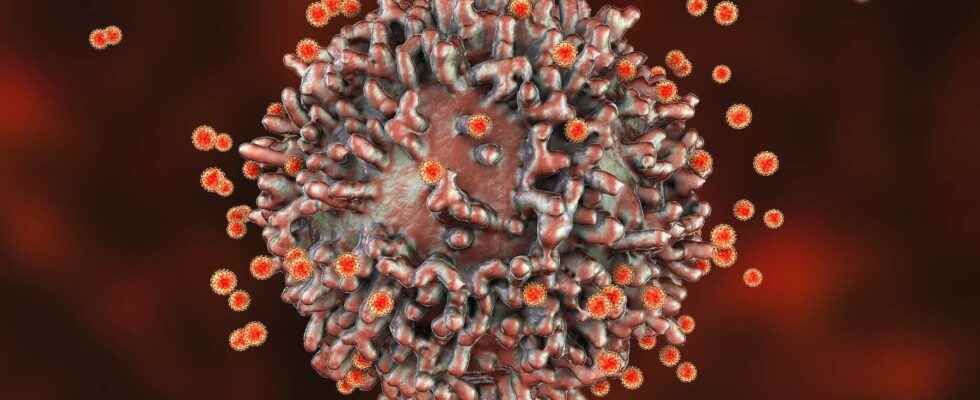Immunity keeps track of past infections. Everyone has had a cold, a mild infection sometimes caused by coronavirus. According to a recent study, immune cells formed during a cold may also partially protect against SARS-CoV-2 infections.
You will also be interested
[EN VIDÉO] Are we protected after a SARS-CoV-2 infection? The re-emergence of already infected cases in South Korea raises fears of weak immunity after SARS-CoV-2 infection. So what do we know about the antibody response generated by our body? Overview of the subject in this video with two experts.
Human coronaviruses, other than those of the SARS family, are responsible for the typical symptoms ofwinter : sore throat, runny nose and other cold which generally resolve on their own. Previous studies have shown that lymphocytes T specific for these human coronaviruses also recognize their more virulent cousin, SARS-CoV-2. We can then assume that the presence of these T lymphocytes constitutes a protection, not total, against infections with SARS-CoV-2.
ScientistsImperial College from London have studied this question. Does the presence of T cells specific for other coronaviruses at the time a person is exposed to SARS-CoV-2 influence infection?
More cross-reactive cells in the uninfected?
” Being exposed to SARS-CoV-2 doesn’t always lead to infection, and we wanted to understand why. We have found that high levels of pre-existing T cells, created by the body when infected with other human coronaviruses like the common cold, can protect against Covid-19 infection. », Explains Rhia Kundu, first author of the study.
The study took place in September 2020 among 52 Britons, relatively young, living with someone infected with SARS-CoV-2, and who were therefore at risk of being infected in turn. The participants carried out PCR tests at the start of the experiment, 4 and 7 days later to confirm the infection or not. At the same time, the participants also took a blood test to analyze the presence of the famous T lymphocytes.
The results showed that the 26 uninfected people had more of these so-called cross-reactive cells than the infected people. These T lymphocytes are active against SARS-CoV-2 because they recognize part of the coronavirus that is conserved between all viruses of this family, the nucleocapsid. However, scientists did not observe any differences among T cells specific to the protein S between infected and uninfected participants.
In other words, the presence of these T lymphocytes could confer partial protection against infection, but by no means prevent it entirely.
” While this is an important finding, it is only a form of protection, and I want to stress that no one should rely on this alone. However, the best way to protect yourself against Covid-19 is to be fully immunized, including receiving your booster dose », Concludes Rhia Kundu.
Interested in what you just read?
.
fs6
